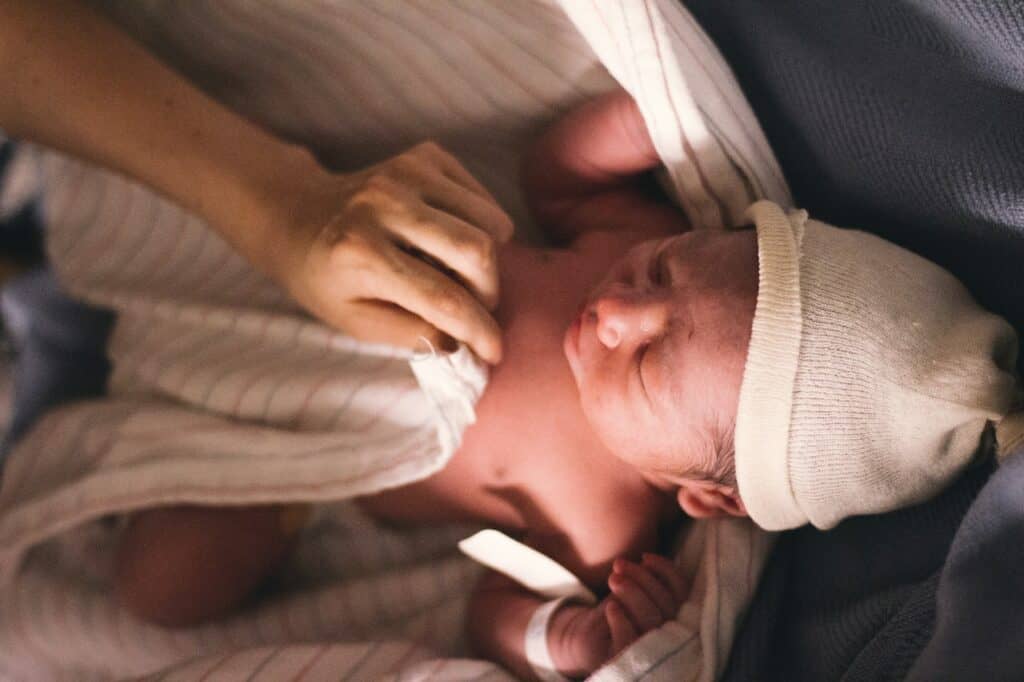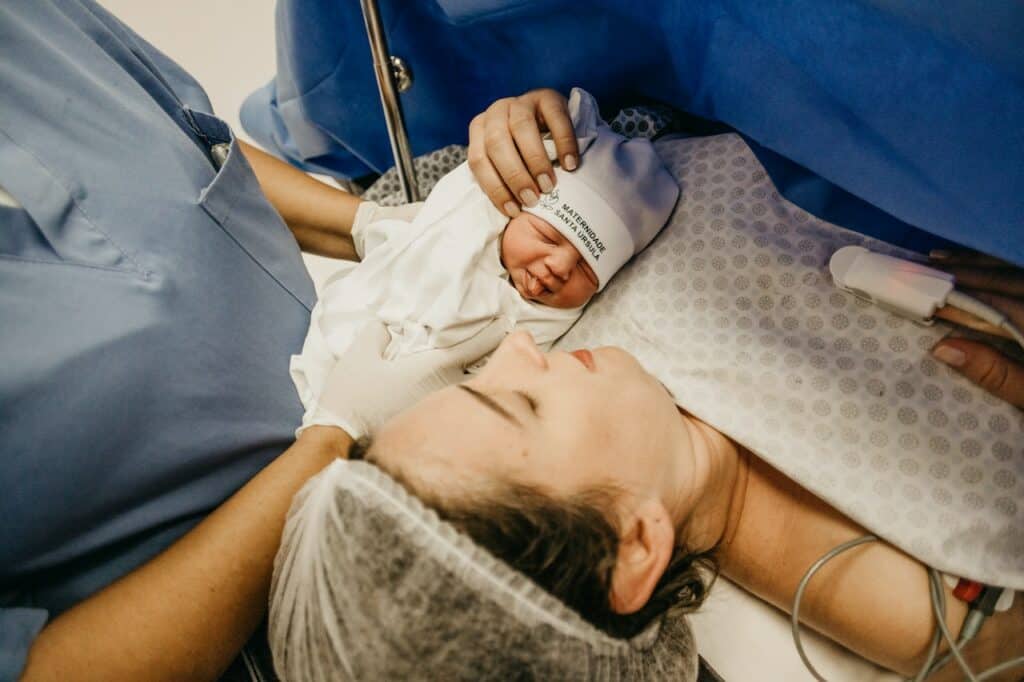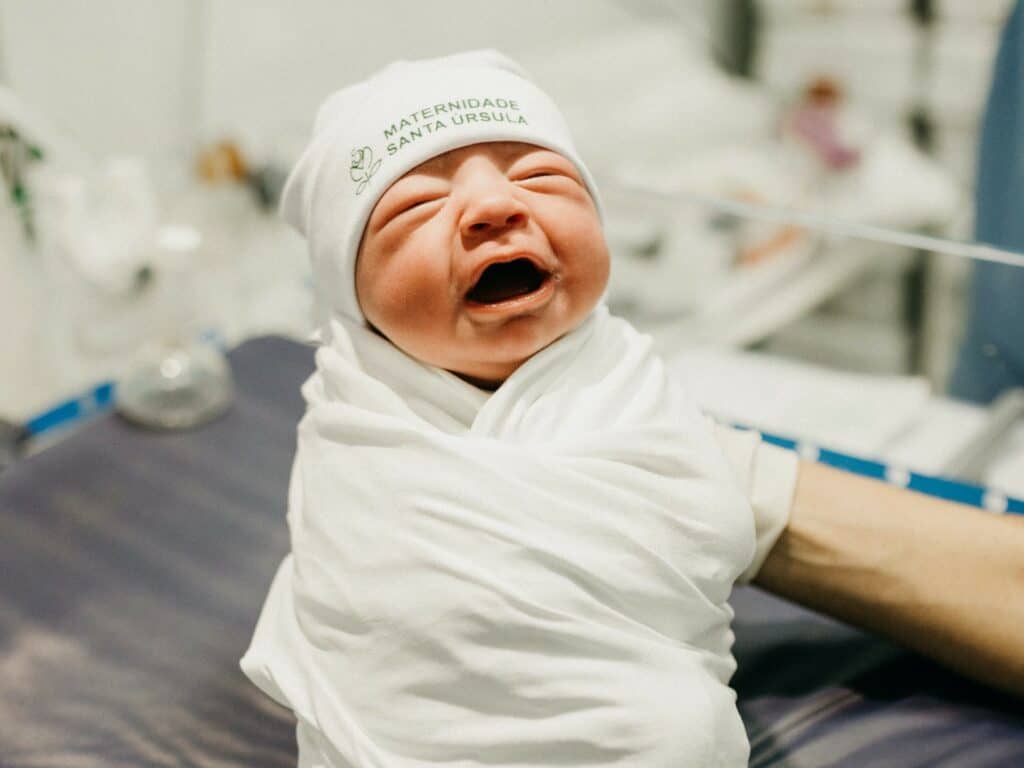Hospitals provide a wide range of services and support for newborns and their families. From immediate care after birth to postpartum care for the mother, hospitals have a team of healthcare professionals dedicated to ensuring the health and well-being of both the mother and her newborn baby.
Immediate care for newborns in the hospital includes a thorough physical examination to assess the baby’s overall health and well-being. This includes checking the baby’s vital signs, weight, and reflexes, as well as conducting a variety of screening tests to identify any potential health concerns. Hospitals also provide a range of supplies for newborn care, including diapers, wipes, and clothing.
Feeding and nutrition are also important aspects of newborn care in the hospital. Hospitals typically offer breastfeeding support and education to new mothers, as well as formula and other feeding supplies for those who choose not to breastfeed. In addition, hospitals conduct a variety of newborn screening tests to identify any potential health concerns early on.
Key Takeaways
- Hospitals provide a range of services and support for newborns and their families, including immediate care after birth and postpartum care for the mother.
- Newborns receive a thorough physical examination and a variety of screening tests to identify any potential health concerns.
- Hospitals offer breastfeeding support and education, formula, and other feeding supplies for newborns.
Immediate Care for Newborns in Hospital
When a newborn arrives at the hospital, they will receive immediate care to ensure their health and safety. This care includes a variety of tests and procedures to assess the baby’s overall health and well-being.
One of the first things that will happen is skin-to-skin contact between the baby and their parent. This helps the baby regulate their body temperature and can promote bonding between parent and child. The hospital staff will also administer a vitamin K shot to the baby to help prevent bleeding.
The baby will undergo several tests, including a hearing test and an Apgar test to assess their heart rate, breathing, and other vital signs. A pulse oximetry test will also be performed to measure the baby’s oxygen levels.
A physical exam will be conducted to assess the baby’s overall health, including their reflexes and temperature. The hospital staff will also provide support and guidance to parents on how to breastfeed their baby, and a lactation consultant may be available to help with any breastfeeding issues.
Finally, the baby will be seen by a pediatrician who will provide ongoing care throughout the hospital stay. The pediatrician will monitor the baby’s health and provide any necessary treatments or medications.
Overall, the hospital provides comprehensive care for newborns to ensure their health and well-being.
Hospital Supplies for Newborn Care
Hospitals provide a variety of supplies to ensure the proper care of newborns. These supplies include hats, diapers, wipes, blankets, ointment, bulb syringes, nasal aspirators, and baby wash.

Hats are provided to keep newborns warm and to prevent heat loss. Diapers are essential for hygiene and to prevent diaper rash. Wipes are used to clean the baby’s bottom and other areas of the body. Blankets are used to keep the baby warm and provide comfort.
Ointment is provided to prevent diaper rash and soothe any irritation. Bulb syringes and nasal aspirators are used to clear mucus from the baby’s nose, which can help with breathing and prevent infection. Baby wash is provided to keep the baby clean and to prevent any skin irritation.
Overall, hospitals provide a range of supplies to ensure the proper care of newborns. These supplies are essential for the health and well-being of the baby.
Feeding and Nutrition in Hospital
Newborns require proper nutrition for healthy growth and development. Hospitals provide various feeding options for newborns, including breastfeeding, formula feeding, and the use of pacifiers.
Breastfeeding is encouraged as it provides the best nutrition for newborns and offers numerous health benefits for both the baby and mother. Hospitals have lactation consultants available to assist mothers with breastfeeding, including proper positioning and latching techniques.
Formula feeding is also available for mothers who cannot or choose not to breastfeed. Hospitals provide various types of formula, including cow’s milk-based, soy-based, and hypoallergenic formulas.
Newborns are also given a vitamin K injection shortly after birth to prevent bleeding disorders.
Pacifiers are also provided in hospitals as they can help soothe newborns and reduce the risk of sudden infant death syndrome (SIDS). However, it is important to note that pacifiers should not be introduced until breastfeeding is well established to avoid nipple confusion.
In conclusion, hospitals provide various feeding and nutritional options for newborns, including breastfeeding, formula feeding, and the use of pacifiers. Lactation consultants are available to assist mothers with breastfeeding, and newborns receive a vitamin K injection to prevent bleeding disorders. Pacifiers are also provided but should not be introduced until breastfeeding is well established.
Newborn Screening Tests in Hospitals
Newborn screening tests are a series of tests that are performed on newborns to detect any potential health issues that may not be apparent at birth. These tests are usually performed within the first 48 hours of birth and are mandatory in most hospitals. The screening tests are designed to detect certain conditions that, if left untreated, can lead to serious health problems or even death.

Some of the most common conditions that are screened for include PKU (phenylketonuria), hypothyroidism, sickle cell disease, cystic fibrosis, and galactosemia. These conditions are genetic and can be passed down from parent to child. If the condition is detected early, treatment can be started immediately, which can prevent serious health problems down the road.
During the newborn screening test, a small amount of blood is taken from the baby’s heel and sent to a lab for analysis. The lab will test the blood for various conditions, including PKU, hypothyroidism, sickle cell disease, and cystic fibrosis. In addition to these tests, the baby will also receive a hepatitis B vaccine.
Aside from blood tests, the baby’s heart rate, skin color, length, weight, and head circumference will also be measured. These measurements are important for determining if the baby is healthy and growing properly. If any abnormalities are detected, further testing may be required.
Overall, newborn screening tests are an essential part of ensuring the health and well-being of newborns. By detecting potential health issues early, doctors can provide treatment that can prevent serious health problems down the road.
Postpartum Care in Hospitals
After giving birth, the mother and newborn are typically kept in the hospital for a few days to ensure their health and safety. During this time, the mother will receive postpartum care to help her recover from the delivery.
For mothers who have had a vaginal delivery, postpartum care may include monitoring for bleeding and tears, as well as providing mesh underwear and witch hazel pads to help with discomfort. Some hospitals may also offer a donut pillow to help alleviate pressure on the perineum.
For mothers who have had a c-section, postpartum care may include monitoring for bleeding and infection, as well as providing pain medication and support for breastfeeding. The mother may also be given a postpartum care kit with supplies such as abdominal binders and stool softeners to aid in recovery.
Regardless of the delivery method, all mothers will receive regular check-ups from medical staff to ensure their recovery is progressing well. This may include monitoring for signs of infection, checking vital signs, and providing support for breastfeeding.
Overall, hospitals provide comprehensive postpartum care to help mothers recover from delivery and ensure the health and safety of both mother and newborn.
Hospital Policies and Support
When it comes to newborns, hospitals have policies in place to ensure the safety and well-being of both the baby and the mother. These policies can vary depending on the hospital, but they generally cover things like breastfeeding support, rooming-in options, and newborn screenings.

One important policy to be aware of is whether the hospital is designated as “baby-friendly” by the Baby-Friendly Hospital Initiative. This initiative encourages hospitals to promote and support breastfeeding, skin-to-skin contact, and rooming-in for newborns and their mothers. Baby-friendly hospitals have been shown to have higher rates of breastfeeding success and better outcomes for both mothers and babies.
Most hospitals also offer support groups for new moms, where they can connect with other women who are going through similar experiences. These groups can be a great source of information and emotional support, especially for first-time mothers.
When preparing for a hospital stay, it’s important to check with your insurance provider to understand what is covered. Some insurance plans may have restrictions on the length of hospital stays or the types of services that are covered.
It’s also a good idea to take a hospital tour before your due date so that you can familiarize yourself with the facilities and policies. Many hospitals offer these tours free of charge, and they can help alleviate any anxiety you may have about the birthing process.
Finally, when packing your hospital bag, be sure to include items for both you and your newborn. This may include clothing, toiletries, and any necessary medical supplies. Check with your hospital ahead of time to see if they have any specific guidelines or recommendations for what to bring.
Overall, hospitals provide a range of policies and support for newborns and their mothers. By understanding these policies and preparing ahead of time, new parents can ensure a safe and positive birthing experience.
Additional Services and Items
Hospitals offer additional services and items to new parents to ensure their newborns are well taken care of. These services and items include:
- Breast Pump: Hospitals provide breast pumps to new mothers who need them. These pumps are used to express milk and can be rented or borrowed from the hospital.
- Comfort Items: Hospitals provide comfort items for both the mother and the baby. These items include blankets, pillows, and socks.
- Formula Samples: Hospitals provide formula samples to new parents who choose not to breastfeed or who have difficulty breastfeeding. These samples are usually provided by formula companies and are available in different brands and types.
- Nipple Shield: Hospitals provide nipple shields to new mothers who have difficulty breastfeeding. These shields are placed over the nipple to help the baby latch on properly.
- Nipple Cream: Hospitals provide nipple cream to new mothers who experience soreness or cracking of the nipples due to breastfeeding. This cream helps soothe and heal the nipples.
- Newborn Care: Hospitals provide newborn care services to new parents. These services include newborn exams, hearing tests, and jaundice screenings.
Overall, hospitals provide a range of services and items to new parents to ensure their newborns are well taken care of. These services and items help new parents feel confident and knowledgeable about caring for their newborns.
Related Post: Do Hospitals Charge for Skin to Skin
Frequently Asked Questions
What are the typical items provided by hospitals for newborns?
Hospitals typically provide a number of items for newborns, including diapers, wipes, blankets, and clothing. Some hospitals may also provide pacifiers, hats, and swaddling blankets. These items are usually provided during the hospital stay and are not meant to be taken home.
What is included in routine newborn care at the hospital?
Routine newborn care at the hospital includes a number of procedures, such as a physical exam, hearing screening, and blood tests. The hospital staff will also monitor the baby’s vital signs, including heart rate, breathing, and temperature. In addition, the baby will receive vaccinations and may be given a vitamin K shot.
Will the hospital provide formula for my newborn?
Most hospitals provide formula for newborns who are not breastfeeding. However, if you plan to breastfeed, it is important to let the hospital staff know so they can provide support and resources to help you get started.
Does the hospital give you nursing pads after delivery?
Many hospitals provide nursing pads for new mothers to use after delivery. These pads can help absorb any leaking breast milk and prevent discomfort. However, it is a good idea to bring your own nursing pads just in case.
What kind of post-delivery care can I expect from the hospital?
After delivery, the hospital staff will monitor your recovery and provide any necessary care. This may include pain management, wound care, and assistance with breastfeeding. The staff will also provide education and resources to help you care for your newborn after you leave the hospital.
Will the hospital provide any items to help with postpartum recovery?
Some hospitals provide items to help with postpartum recovery, such as perineal pads, witch hazel pads, and sitz baths. These items can help relieve discomfort and promote healing. However, it is a good idea to bring your own supplies just in case.

Iesha is a loving mother of 2 beautiful children. She’s an active parent who enjoys indoor and outdoor adventures with her family. Her mission is to share practical and realistic parenting advice to help the parenting community becoming stronger.
